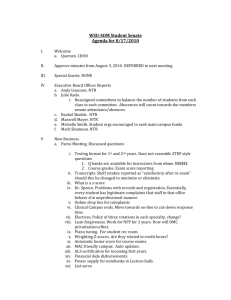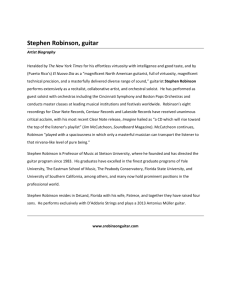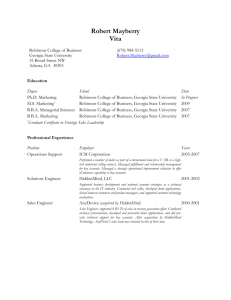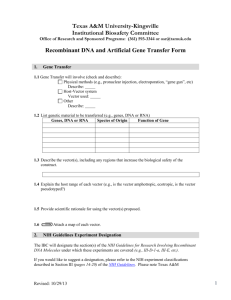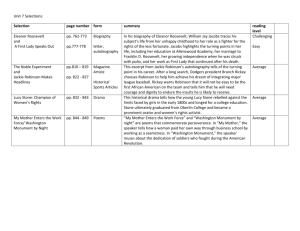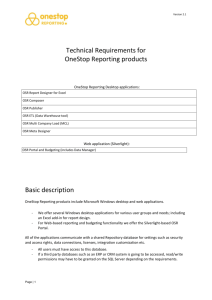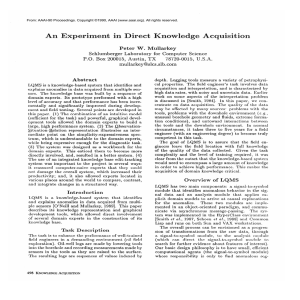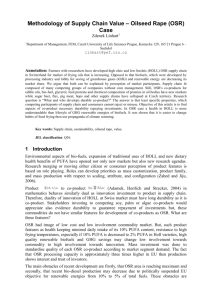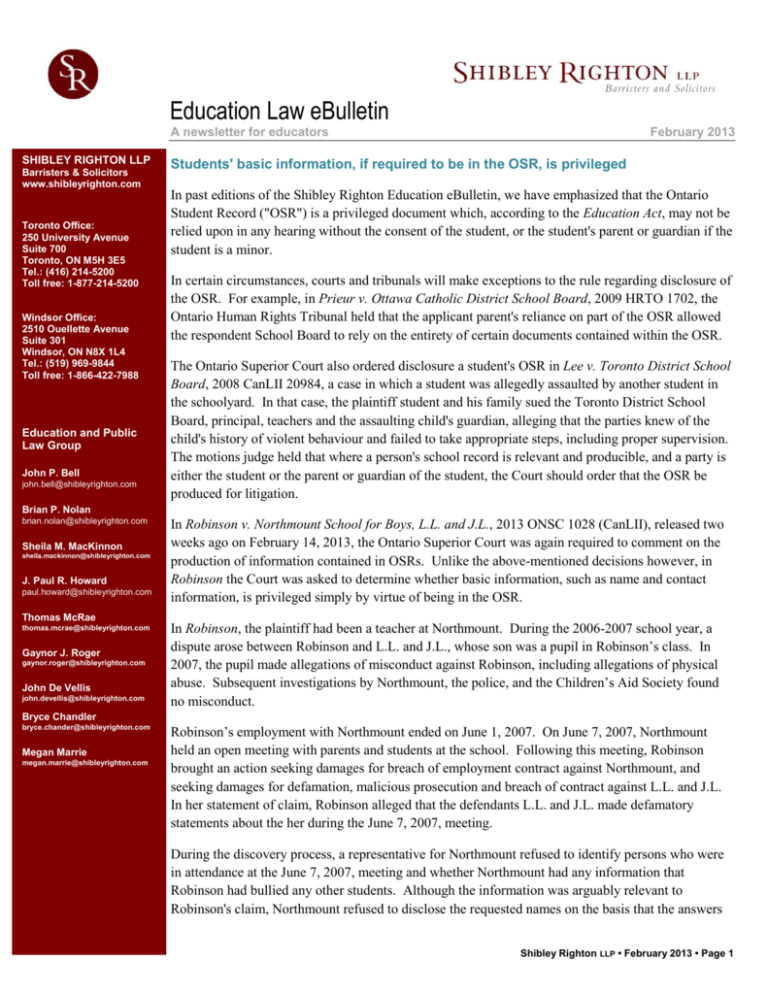
Education Law eBulletin
A newsletter for educators
SHIBLEY RIGHTON LLP
Barristers & Solicitors
www.shibleyrighton.com
Toronto Office:
250 University Avenue
Suite 700
Toronto, ON M5H 3E5
Tel.: (416) 214-5200
Toll free: 1-877-214-5200
Windsor Office:
2510 Ouellette Avenue
Suite 301
Windsor, ON N8X 1L4
Tel.: (519) 969-9844
Toll free: 1-866-422-7988
Education and Public
Law Group
John P. Bell
john.bell@shibleyrighton.com
February 2013
Students' basic information, if required to be in the OSR, is privileged
In past editions of the Shibley Righton Education eBulletin, we have emphasized that the Ontario
Student Record ("OSR") is a privileged document which, according to the Education Act, may not be
relied upon in any hearing without the consent of the student, or the student's parent or guardian if the
student is a minor.
In certain circumstances, courts and tribunals will make exceptions to the rule regarding disclosure of
the OSR. For example, in Prieur v. Ottawa Catholic District School Board, 2009 HRTO 1702, the
Ontario Human Rights Tribunal held that the applicant parent's reliance on part of the OSR allowed
the respondent School Board to rely on the entirety of certain documents contained within the OSR.
The Ontario Superior Court also ordered disclosure a student's OSR in Lee v. Toronto District School
Board, 2008 CanLII 20984, a case in which a student was allegedly assaulted by another student in
the schoolyard. In that case, the plaintiff student and his family sued the Toronto District School
Board, principal, teachers and the assaulting child's guardian, alleging that the parties knew of the
child's history of violent behaviour and failed to take appropriate steps, including proper supervision.
The motions judge held that where a person's school record is relevant and producible, and a party is
either the student or the parent or guardian of the student, the Court should order that the OSR be
produced for litigation.
Brian P. Nolan
brian.nolan@shibleyrighton.com
Sheila M. MacKinnon
sheila.mackinnon@shibleyrighton.com
J. Paul R. Howard
paul.howard@shibleyrighton.com
In Robinson v. Northmount School for Boys, L.L. and J.L., 2013 ONSC 1028 (CanLII), released two
weeks ago on February 14, 2013, the Ontario Superior Court was again required to comment on the
production of information contained in OSRs. Unlike the above-mentioned decisions however, in
Robinson the Court was asked to determine whether basic information, such as name and contact
information, is privileged simply by virtue of being in the OSR.
Thomas McRae
thomas.mcrae@shibleyrighton.com
Gaynor J. Roger
gaynor.roger@shibleyrighton.com
John De Vellis
john.devellis@shibleyrighton.com
In Robinson, the plaintiff had been a teacher at Northmount. During the 2006-2007 school year, a
dispute arose between Robinson and L.L. and J.L., whose son was a pupil in Robinson’s class. In
2007, the pupil made allegations of misconduct against Robinson, including allegations of physical
abuse. Subsequent investigations by Northmount, the police, and the Children’s Aid Society found
no misconduct.
Bryce Chandler
bryce.chander@shibleyrighton.com
Megan Marrie
megan.marrie@shibleyrighton.com
Robinson’s employment with Northmount ended on June 1, 2007. On June 7, 2007, Northmount
held an open meeting with parents and students at the school. Following this meeting, Robinson
brought an action seeking damages for breach of employment contract against Northmount, and
seeking damages for defamation, malicious prosecution and breach of contract against L.L. and J.L.
In her statement of claim, Robinson alleged that the defendants L.L. and J.L. made defamatory
statements about the her during the June 7, 2007, meeting.
During the discovery process, a representative for Northmount refused to identify persons who were
in attendance at the June 7, 2007, meeting and whether Northmount had any information that
Robinson had bullied any other students. Although the information was arguably relevant to
Robinson's claim, Northmount refused to disclose the requested names on the basis that the answers
Shibley Righton LLP • February 2013 • Page 1
would reveal information about non-party students. In short, Northmount took the position that the information itself was
privileged and protected by s. 266 of the Education Act because it could also be found in the non-party students’ OSRs.
As a result of the refusals, Robinson brought a motion before the Ontario Superior Court to compel Northmount to
produce the information requested. The motion was heard by a Master, a judicial officer authorized to hear and decide
pre-trial motions. At the motion, Robinson argued that the privilege contemplated by s. 266 of the Education Act protects
the actual documentary contents of the OSR, but not necessarily all the information contained in those documents.
Robinson argued that she was not seeking the actual documents; her requests were limited to the names and contact
information of non-party students and their parents who may have information relevant to the matters in the action.
In his analysis, the Master reviewed a 1998 decision by Justice Rivard of the Ontario Superior Court in Pandremenos v.
Riverdale Collegiate Institute. In Pandremenos, Justice Rivard held that s. 266 of the Education Act clearly provides that
the OSR is privileged and that the record, which must include the name and address of the student, is privileged and
cannot be disclosed without the written consent of the student or the parent, if the student is a minor.
In the Master’s opinion, the Education Act served to make the record privileged, and not necessarily basic information
contained therein. Despite the Master's disagreement with the previous decision, he followed Pandremenos and held that
basic student information, including name and contact information, is specifically required to form part of the OSR and is
therefore privileged and could not be disclosed by Northmount without the appropriate consent.
In our view, Rivard's decision in Pandremenos and the ultimate conclusion reached by the Master in Northmount that
necessary OSR information is privileged and not ordinarily subject to disclosure is the interpretation which most closely
follows legislative requirements and the Guidelines. Notably, the circumstances in which production of the OSR has been
compelled by a court or other administrative tribunal include situations in which the records belong to the students and/or
parents who are actual parties to the litigation. In this case, the plaintiff was attempting to gain access to non-party
information; the Master's ultimate refusal to order Northmount to disclose this information preserves the confidential
nature of OSRs and the requirement that appropriate consent be obtained prior to disclosure.
School boards and school administrators should be mindful of the confidential nature of OSRs when responding to any
requests that could result in disclosure of this information. As set out in the OSR Guidelines, where a school
administrator is subpoenaed to attend court with the OSR, the principal should attend court with both the original OSR
and a complete and exact photocopy of it, and should propose to the judge that the photocopy be submitted instead of the
original. The principal should inform the judge that any subpoena is inconsistent with subsection 266(2) of the Education
Act, however, the principal must relinquish the documents if ordered to do so by the judge.
Legal Issues for Independent and Private Schools Conference
Please find attached a brochure for the upcoming conference on Legal Issues For Independent and Private
Schools jointly hosted by the Ontario Federation of Independent Schools and York University, Faculty of
Education. The Conference will be held at the Mississauga Grand Conference Centre on Wednesday, April 17,
and Thursday, April 18, 2013.
Bryce Chandler and Deborah Howden, both experienced counsel with Shibley Righton LLP, will be delivering
workshops regarding workplace and human rights issues on Wednesday afternoon and Thursday morning.
© Copyright 2013. Shibley Righton LLP. All rights reserved.
Shibley Righton LLP • February 2013 • Page 2


